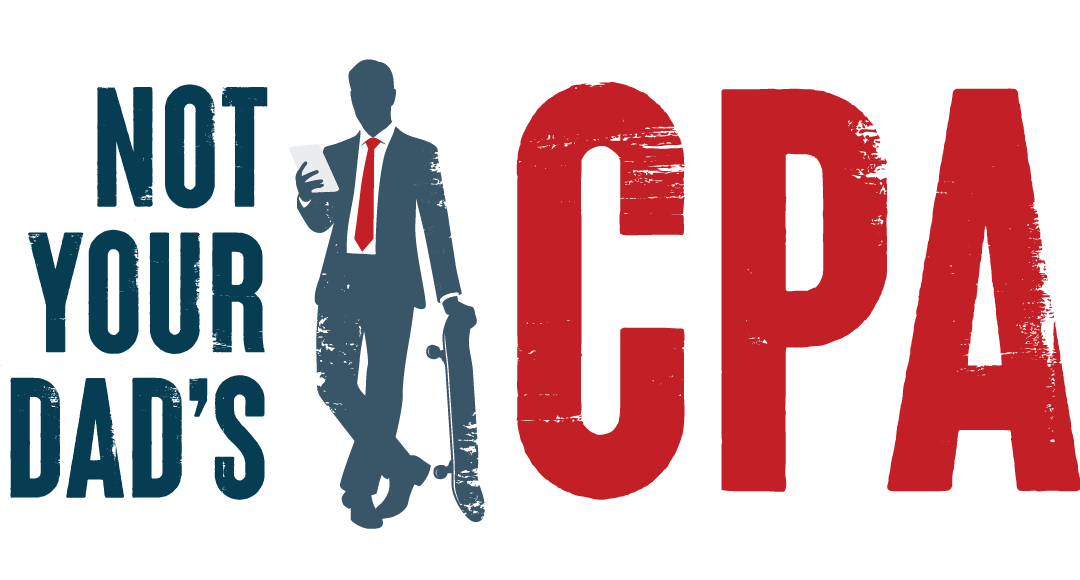All the information you need is online. The trouble is sorting through all of the misinformation, including the biggest reseller tax myths, which you will inevitably run into.
I talk with reseller business owners almost every day, and I can tell you first hand that the tax myths discussed below are widespread and continue to be perpetuated. Let’s talk about what they are and how to avoid falling victim to them.
Tax Myth #1: The Home Office Deduction is an Audit Trigger
Bill just made the jump from his W-2 job to full-time reselling on Amazon and eBay. He had always done his own taxes. When it came time to do them during his first year of self-employment as a reseller, he decided to take the do-it-yourself approach again.
He had heard he could take a deduction for his home office. But he had also heard that claiming that particular deduction was a trigger for IRS audits. He decided to take a chance anyway and claim the deduction.
8 weeks later, his doorbell rang. Standing there were 2 men in suits with briefcases asking to inspect his premises and records. Bill was petrified.

Luckily, Bill is just a fictional character, and this is just an example of what thousands of resellers fear about claiming the home office deduction (or about doing their taxes in general).
The good news is that claiming the home office deduction is not an audit trigger.
The old-timers tell me there was a time, 20 and 30 years ago, when the IRS did audit more aggressively in this area. But there was much more gray area back then (if you can believe that), a lot of which has been clarified with new rules. And even if the IRS did still audit based on the home office deduction, so many individuals are taking it these days that the statistical chance of being selected for an audit would be drastically reduced.
If you want to see my list of 31 deductions you should be taking advantage of, click below.
Take Action
Absolutely take advantage of the home office deduction. This is often one of the biggest deductions that a small-business owner can take, so it can make a significant difference in your taxable income. The two main criteria to qualify are that your office must be used regularly and exclusively for your business. So if you’ve been doing your work from your front room couch, you may want to consider a dedicated office space.
Inventory storage space is the one exception to the “regular & exclusive use” rule. As the IRS puts it, “If you use part of your home for storage of inventory or product samples, you can deduct expenses for the business use of your home without meeting the exclusive use test.” You don’t qualify, however, if you have any other locations for your storage (like a storage unit or warehouse) or your business.
Tax Myth #2: It’s Better to Make Less Money to Avoid Paying More Taxes
Bill’s sister Daisy started selling on Poshmark part time earlier this year, and her husband Merrill has a full-time job as a teacher.
Her store has really started to take off, and Merrill is worried that the additional income will put them in a higher tax bracket. Daisy doesn’t want to stop her positive selling momentum, but Merrill told her to stop selling once she hits a certain point because he doesn’t want to go from the 12% federal income tax tax bracket to the 22% tax bracket.

What is a girl like Daisy to do?
Daisy doesn’t really worry about taxes, and lately, she doesn’t care what Merrill thinks anyway, so she decides to keep selling.
When tax time rolls around, Merrill and Daisy end up with a taxable income of $85,000, which put them in the 22% tax bracket. At first, Merrill was confused why their income was higher than expects. And then he felt angry Daisy kept selling behind his back. And then he felt scared about the impending tax consequences.
This whole roller coaster of emotions could have been avoided had Merrill not fallen for the myth that you pay the same tax rate on all of your income.
In the U.S., we have what is referred to as a marginal income tax system.
For example, married couples pay 10% of their first $20,000 (rounded up) of taxable income, 12% on the next $58,000, and 22% on the next $83,000, etc. Merrill was worried that if they had a taxable income of more than $78,000 that they would have to pay 22% on the whole amount.
Having made $85,000 of taxable income, however, they only have to pay 22% on $7,000 of it (10% of the first $20,000, 12% on the next $58,000, and 22% on the remaining $7,000).
Even though that extra $7,000 is taxed at 22% instead of 12%, they wouldn’t have had any of that money if Daisy had listened to Merrill.
Then Merrill was glad, and he remembered that Daisy’s independence and strong character were the reasons he married her in the first place.
Take Action
Don’t limit your sales to avoid higher marginal income taxes.
Tax Myth #3: If You Don’t Exceed $20,000 in Sales, You Don’t Have to Report Your Income
Wayne has read at least 2 different threads in the eBay forums where someone said if you sell less than $20,000 that you don’t have to report that income on your taxes.

Even though the threads were over a year old, one of the commenters who really seemed to know what he was talking about had the user name “accounting_ebayer_steve765.” That seemed pretty legitimate to Wayne, so he didn’t bother tracking his sales because he didn’t think he would exceed the $20,000 threshold.
Then late the following January, Steve got a strange looking form in the mail from PayPal. It was called Payment Card and Third Party Network Transactions, and in tiny letters it said Form 1099-K.
In the first box, the form showed that the gross amount of transactions was $20,001. The form also said the information was being reported to the IRS.
Wayne started to worry.
Because he had believed “accounting_ebayer_steve765,” Wayne now has two problems:
- Because he thought he wouldn’t exceed the threshold, he didn’t bother keeping any records. Now he has to go back and try to figure out all of his costs and expenses.
- He still thinks the only reason he has to report the income is because he exceeded the threshold.
If Wayne had read Reseller Finance, he would know that all of his eBay business activity is reportable to the IRS.
Third party payment processors such as PayPal and Amazon are now required by the IRS to report transactions for resellers who make over $20,000 in sales and have 200 or more transactions. (That’s the federal requirement. In some states, the threshold is even lower.)
If you make less than that, it just means that no one else will be reporting your activity to the IRS, and it will be your responsibility to do so.
Take Action
Report all selling-related income and expenses from your business on your taxes. To do that, you need to keep good records.
Tax Myth #4: If You Sell as a Hobby, You Don’t Have to Pay Taxes
Some people sell stuff for fun, like Patrice. Every once in a while she lists old antiques that she finds in her attic. She doesn’t try to make a profit, she just likes selling things occasionally as a hobby.
Taxes are the last thing on her mind. Besides, she remembers her brother-in-law once said that any money you earn from your hobbies isn’t taxable. One time at a family reunion, he was bragging about how he was avoiding taxes by calling his business a “hobby” rather than a business.
Patrice’s hobby income is still going unreported to the IRS, but in her case, it’s okay because she is not generating a profit. If she ever does start making a profit, however, she should technically be reporting it to the IRS as taxable income.
To be clear, the net earnings on hobby sales are indeed taxable. Many of these sales, however, end up being net losses. In other words, people are often selling their stuff for less than they purchase it for, so there is no profit to tax. But if they do make a profit, the government wants a piece.
The IRS has a whole list of tests to determine whether or not your activity is a hobby. It generally boils down to your intent. In general, it’s a hobby if you don’t have the intent of making a profit.
Classifying your activity as a hobby will not protect you from paying taxes. In fact, it is often disadvantageous because of how expenses are treated. With a hobby, you can’t deduct any related expenses.
In contrast, business expenses directly offset business income. They are deductible regardless of whether the business generated a profit or loss. This often makes owning a business, as opposed to engaging in a hobby, more financially appealing.
Patrice did read Reseller Finance, so now she’s considering turning her hobby into a business. She can’t wait to tell her brother-in-law that he’s not the know-it-all he thinks he is.
Take Action
Don’t mistakenly classify your business as a hobby to avoid taxes (it doesn’t work like that). If you have a selling hobby, consider converting it into more of a business to optimize the tax implications.
Tax Myth #5: If You Make Less Than $400, You Don’t Have to Pay Taxes
Margaret sells part-time on Etsy, and she considers herself to be fairly tax savvy. She read somewhere that if she profits less than $400 that she doesn’t have to pay taxes. She doesn’t anticipate making a profit over that amount this year anyway, so she feels a sense of relief about not having to deal with taxes.

Unfortunately, Margaret is only half right. She forgot that when you are self employed, not only are you subject to income taxes but you are also self-employment taxes.
The truth is that if you make less than $400, you are not liable to pay self-employment tax, but those earnings are still subject to regular income tax.
Take Action
Set aside 15.3% of your profits for self-employment tax (unless you made less than $400). Also remember to set aside money for income tax (federal, state & local) according to your marginal income tax bracket.
The bottom line
Don’t believe everything you hear on the playground. Reseller tax myths are alive and well.
Be professionally skeptical.
When a friend gives you a hot new tax tip, apply the old auditing phrase “trust, but verify.”
Then come and check with us in the Accounting for Online Sellers Facebook group. See you there!



Fantastic blog thank you.
Thank you for a very clear and informative article. It’s actually a relief to know the rules, so I can proceed with confidence!
But what if you sell both items to make a profit on as well as personal items you take a loss on? You only have to pay taxes on the profits, but how do you separate the items you didn’t make profit on from the ones you did?
No need to separate. You add up the total sales, and you add up the total cost of goods. It may be that on a per item basis some yield profit and others yield loss, but you will look at them all together.
What if you don’t have receipts for the personal items? Most people don’t keep those and are just trying to get something back by reselling it. Are you allowed to list a price for the item even though you don’t have a receipt? Shouldn’t those items be exempt from being taxed again?
Ideally you’d have a receipt, but you are correct that the reality is that most of the time you won’t for personal items. In that case you would just need to create your own documentation. There is always a very very small risk that the IRS takes a look and it’s not good enough for them, but I’ve never seen that happen. In my opinion you should always deduct legitimate business expenses, even if you don’t have a receipt.
I would also like the answer to this question, have any luck?
This is my first year reselling and this was very helpful as tax season approaches, thanks!
Hi Michelle – Glad it help!
i’ve made $13,600 off two platforms combined. 11,600 off one then 1400 off the other. around how much would I be expecting to pay in this years taxes, my 1099 has been super delayed in arriving to me and i’ve been stressing a bit trying to gather the correct information together for my meeting with a specialist.
Does anyone else think Merrill should not be a teacher if he’s that out of touch?
Awesome blog! If I have an online retail business and I don’t profit, am I still able to take deductions for travel, gas, or other related business expenses? And if so, how long can the business be unprofitable while still being able to take deductions?
One example would be that you can deduct your business mileage. You can deduct 65.5 cents for every business mile driven in 2023. Even if your business has a loss, you can still deduct that mileage.
Hello, here is my situation: I buy some with the intent of selling only, some with the intent of wearing myself and then selling, but definitely looking for items that could be profitable. Can I deduct the total cost of items purchased even if they haven’t sold yet? Or do I only subtract the exact cost of items purchased that sold?
Both methods are acceptable, you typically will need to choose one and stick with it. Although I might not deduct the items you wear personally until they are for sale, when they more officially become business inventory. See this post: https://notyourdadscpa.com/can-i-deduct-inventory-when-i-purchase-it/
thank you so much! you are so knowledgeable. i guess i should go ahead and use the accrual method. so if items i bought this year sell next year, i would count the cost as COG in 2024 taxes? and what if items never sell and i just end up donating them? would i be able to deduct the original cost as COG the year i donate them? thank you very much in advance.
Yes, and yes! If you donate then you would just deduct the same way at that time.